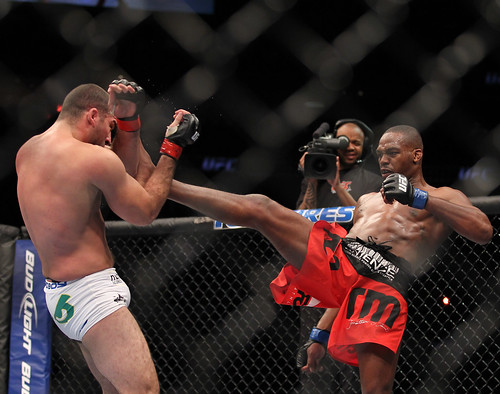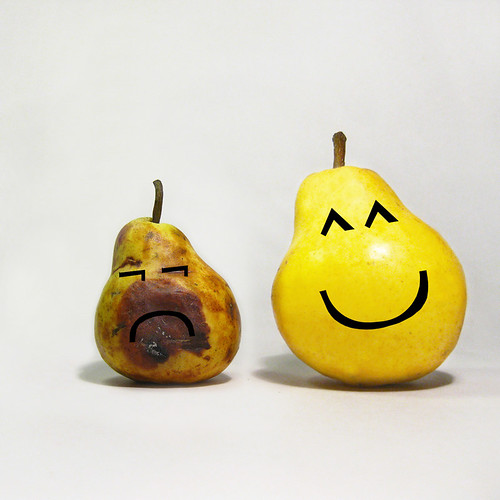Should you wear red if you’re an athlete?
ve posted before about whether the color red has magic powers. Of course, I don't really believe it has magic powers but it does seem to have interesting effects in a number of areas, including sports. Almost universally, red means stop. Red means danger. Red means hot. And analyzing the results in the 2004 Olympics, researchers have found that red also means dominance. Athletes wearing red prevailed more often than those wearing blue, especially in hand-to-hand sports like wrestling. Source…
2 minutes
Here’s What Really Motivates You
learned a lot from Daniel Pink's Drive: The Surprising Truth About What Motivates Us. For any job that requires thought, creativity or problem-solving, Pink doesn't recommend a focus on concrete rewards and punishments. He feels there are three elements we must provide to workers in this category: (1) Autonomy—"the desire to direct our own lives;" (2) Mastery—"the urge to make progress and get better at something that matters; and" (3) Purpose—"the yearning to do what we do in the…
5 minutes
Is artwork of higher quality when we’re not paid to create it?
a Daniel Pink's very interesting book Drive: The Surprising Truth About What Motivates Us. Teresa Amabile, the Harvard Business School professor and one of the world’s leading researchers on creativity, has frequently tested the effects of contingent rewards on the creative process. In one study, she and two colleagues recruited twenty-three professional artists from the United States who had produced both commissioned and noncommissioned artwork. They asked the artists to randomly select ten commissioned works and ten noncommissioned works. Then Amabile and…
2 minutes
What improves performance more: envy or admiration?
ur studies tested the hypothesis that the emotion of benign envy, but not the emotions of admiration or malicious envy, motivates people to improve themselves. Studies 1 to 3 found that only benign envy was related to the motivation to study more (Study 1) and to actual performance on the Remote Associates Task (which measures intelligence and creativity; Studies 2 and 3). Study 4 found that an upward social comparison triggered benign envy and subsequent better performance only when people…
1 min read
How To Reduce Worry And Increase Performance On Challenging Tasks
a Eurekalert: Students can combat test anxiety and improve performance by writing about their worries immediately before the exam begins, according to a University of Chicago study published Friday in the journal Science. And: ...for students given the opportunity to write before the exam, those highest in test anxiety performed just as well as their less anxious classmates. "Writing about your worries for 10 minutes before an upcoming exam leveled the playing field such that those students who usually get…
1 min read
Here’s How Little Sleep Can You Get Away With
e New York Times has an interesting article on the subject but the takeaway is here: In what was the longest sleep-restriction study of its kind, Dinges and his lead author, Hans Van Dongen, assigned dozens of subjects to three different groups for their 2003 study: some slept four hours, others six hours and others, for the lucky control group, eight hours — for two weeks in the lab... ...Not surprisingly, those who had eight hours of sleep hardly had…
2 minutes
Do positive expectations and fantasies help you achieve goals?
sitive expectations do. Positive fantasies don't: Two forms of thinking about the future are distinguished: expectations versus fantasies. Positive expectations (judging a desired future as likely) predicted high effort and successful performance, but the reverse was true for positive fantasies (experiencing one's thoughts and mental images about a desired future positively). Participants were graduates looking for a job (Study 1), students with a crush on a peer of the opposite sex (Study 2), undergraduates anticipating an exam (Study 3), and…
2 minutes
Houseplants make your mind sharper
is research studied possible benefits of indoor plants on attention capacity in a controlled laboratory experiment. Participants were 34 students randomly assigned to one of two conditions: an office setting with four indoor plants, both flowering and foliage, or the same setting without plants. Attention capacity was assessed three times, i.e. immediately after entering the laboratory, after performing a demanding cognitive task, and after a five-minute break. Attention capacity was measured using a reading span test, a dual processing task…
1 min read







